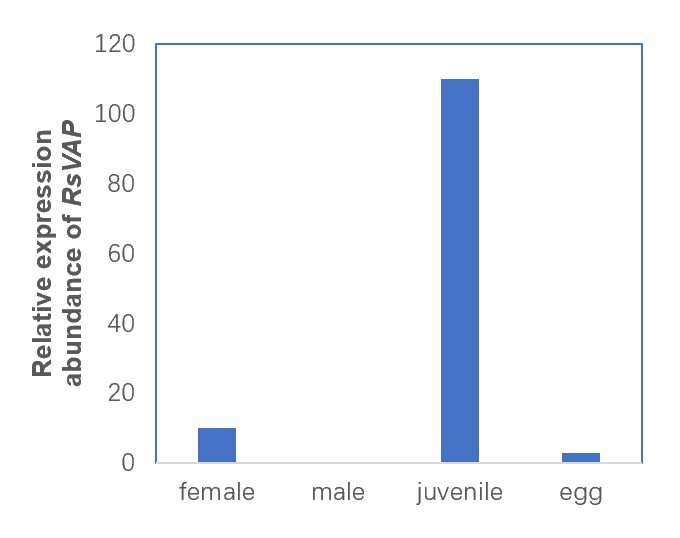During the interaction between nematodes and plant hosts, functional factors are secreted to regulate the host defense response, which induces the accumulation of host defense products. Eventually, they lead to host death due to excessive defense. Functional factors of plant nematodes mainly include venom allergen proteins (VAPs), thaumatin-like proteins (TLPs), cysteine protease inhibitors (CPIs), and other functional factors that interact with the host.
Lifeasible provides a range of services to our customers worldwide, including venom allergenic proteins, thaumatin-like proteins, cysteine protease inhibitors, and others. With extensive experience and expertise in plant science, we are committed to providing you with timely and high-quality deliverables.
 Fig.1 Relative expression levels of RsVAP in different life stages of plant nematodes.
Fig.1 Relative expression levels of RsVAP in different life stages of plant nematodes.
Lifeasible has been dedicated to planting science for many years. We'll finish your studies on time and within budget. We guarantee the confidentiality and sensitivity of our customer’s data. If you are interested in our services or have any questions, please feel free to contact us or make an online inquiry.
Lifeasible has established a one-stop service platform for plants. In addition to obtaining customized solutions for plant genetic engineering, customers can also conduct follow-up analysis and research on plants through our analysis platform. The analytical services we provide include but are not limited to the following:
Get Latest Lifeasible News and Updates Directly to Your Inbox
Mechanisms Regulating Plant Chloroplast Biogenesis
April 15, 2025